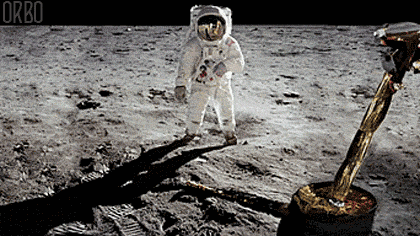Today marks the 50th anniversary of the first paces taken by man on the lunar surface. The moon landing was a giant leap for mankind—so large, in fact, that a few don’t believe it actually happened. In Brazil, a lot more than just a few think it never happened: a survey by Datafolha out this week shows a full quarter of the population to be moon landing skeptics. But disbelief in Brazil is hardly confined to feats of space exploration.
Moon landing conspiracy theories are almost as old as the event itself. The Apollo 11 program was controversial throughout the 1960s, criticized in the U.S. by both left and right, though the landing itself awed the world. An estimated 1 billion people worldwide (one-quarter of the world’s population at the time), watched as Neil Armstrong set foot on the moon’s surface at 11:56:20 pm (Brasília time) on 20 July, 1969. Brazil was no exception, however lame the Folha de S.Paulo newspaper’s headline might have been (“Moon in Our Pocket”).
The last manned perambulation on earth’s natural satellite was way back in 1972. The longer we go without returning, therefore, the more incredible the feat seems, as I’ve argued in a piece for Jacobin. Moon landing conspiracy theories began gaining ground early on, with a 1976 pamphlet the first to consistently argue this case, based on “evidence.”
Perhaps it was the shadow of Watergate that led people to such mistrust—a fact to bear in mind when considering conspiracy theories in Brazil—but, regardless, a small minority in the U.S. continues to hold this position. Rates of moon landing disbelief there hover around the 6-percent mark (though there is some indication this may have crept upwards recently).
So what explains the much higher number in Brazil?
Education levels aren’t a reliable alibi: although belief in the moon...


 Search
Search






































